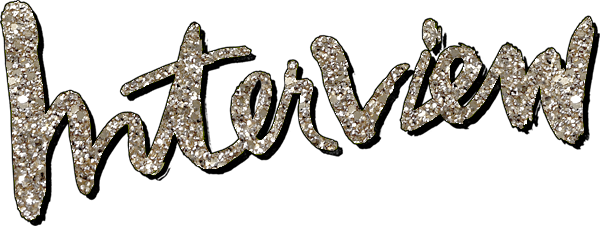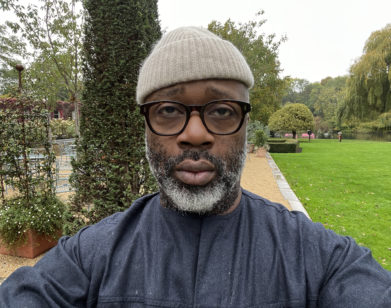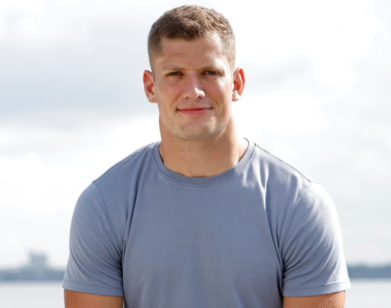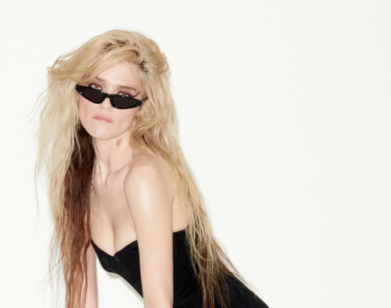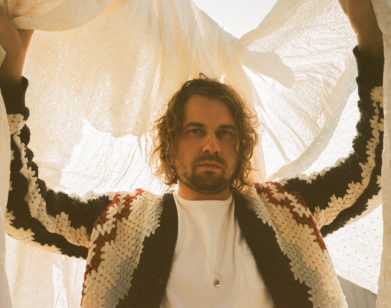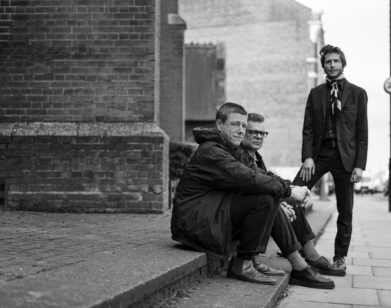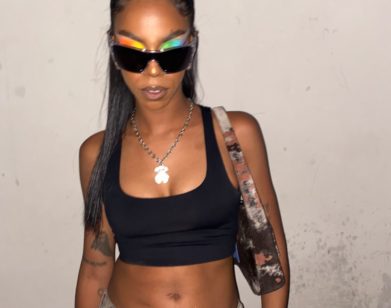Music
“You Have to See It to Be It”: Michelle Zauner and Karen O in Conversation
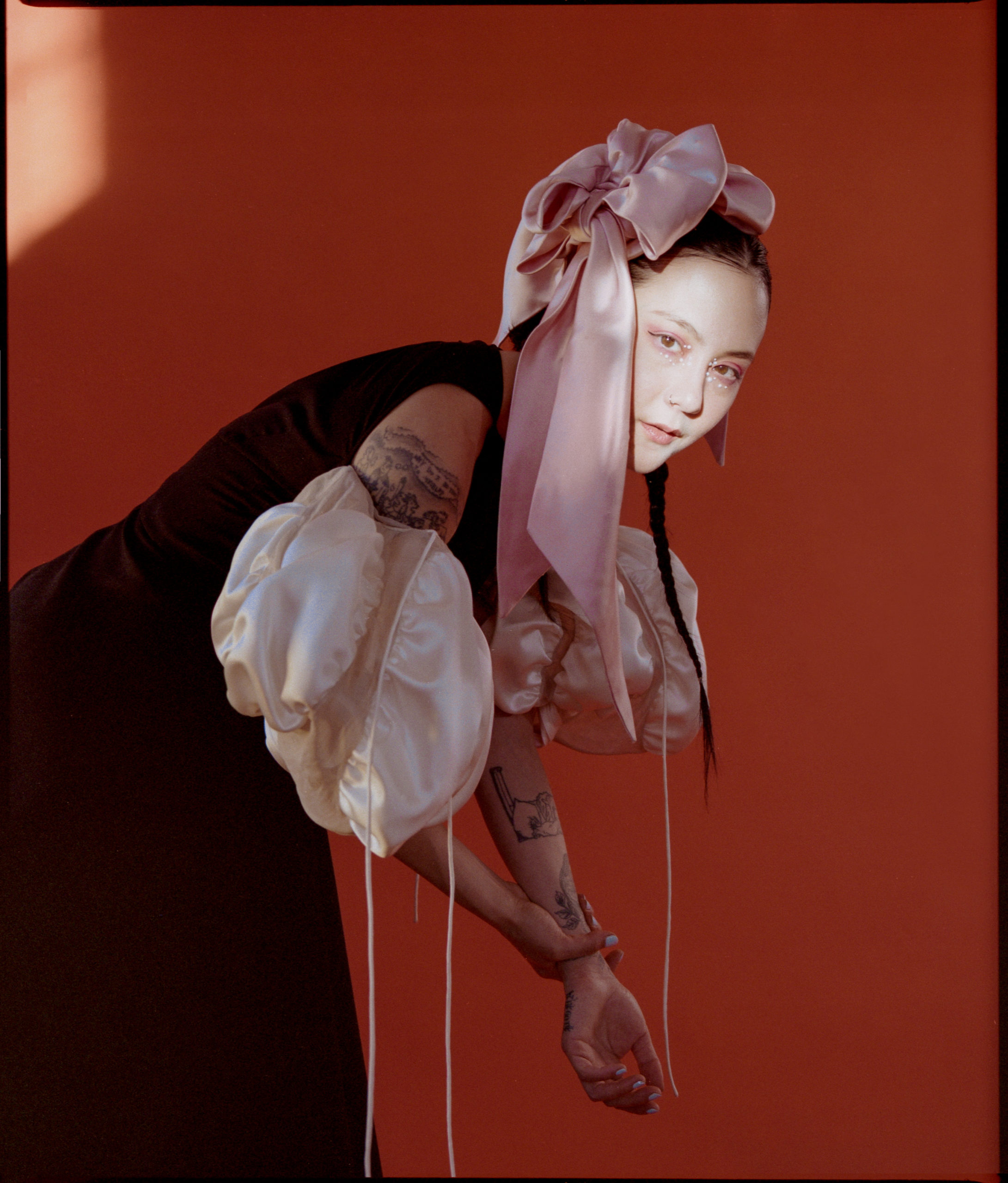
Japanese Breakfast. Photo by Tonje Thilesen.
As Karen O puts it: “Music and food are the great universal, unifying forces.” And Michelle Zauner agrees. Growing up in households with one Korean parent, the Japanese Breakfast singer and the Yeah Yeah Yeahs frontwoman came of age eating dishes like kalbi and japjae while pouring their emotions into music. But thanks to Zauner’s heartrending new memoir, Crying in H Mart, which centers on the devastating loss of her mother, they recently discovered that there’s even more that unifies them. Both experienced traumatic loss at a young age. They understand what it’s like to grow up biracial in America. They hated piano lessons as kids. And, they both love the ’80s pop star Tiffany, whose sound Karen O detects a whiff of in Japanese Breakfast’s third, and latest, studio album, Jubilee. It was on the occasion of album and the memoir’s release—it’s been a very busy summer for Zauner—that they connected for the first time, to talk about all that binds them, whether they realized it or not.
———
KAREN O: I wanted to talk about fearlessness. You tear the fucking veil off what so many of us hide behind, when it comes to sickness, pain, death, the complexities of familial love, and loss. It almost feels naked to me, how much of yourself you reveal. How did you find a path to that honesty?
MICHELLE ZAUNER: I have naturally always been a grossly oversharing type of person. I think it comes from my dad, because my mom was really private and withholding. But my dad is such an over-sharer, and I get that from him. I also felt this sense of urgency, because when I was going through all this, I kept thinking that no one warned me this is what happens. I was really angry at the world for a really long time, that no one had told me that this is what death looks like, or what illness looks like, or how to prepare. Much of this book was me wanting to share that, and warn people that this is what happens and what it looks like. I was really driven to go there because I felt like no one could understand the depth of my drama and sorrow, and I needed everyone to know; I needed to bear every wound in that way.
I’ve had anxiety all day about meeting you because you’ve meant so much to my life. When I discovered your music, it was like my entire world had been flipped; it seemed impossible that someone like me, and with my cultural background, could find themselves in the kind of place that you have. And I’ve never seen anyone exhibit the showmanship and spirit that you do, and have this amazing breadth of catalog, and be the coolest performer of all time, but also able to completely rip your heart apart with your incredible ballads. Did you have someone like that when you were starting?
KAREN O: No, there was no one out there I could relate to in that specific way. There were definitely a few mega inspirations and influences, and I was trying to think of some who aren’t white, because the entertainment and music industry is highly populated by white folks. I went to [Oberlin] College in Ohio, and they’d have lots of indie bands play this tiny venue called the ’Sco, short for disco. I remember seeing Kazu [Makino], from Blonde Redhead perform, just whipping herself across the stage, and I felt this envy, like, “Man, I want to be able to do that.” There were no Korean or Korean-American rockers I could turn to, but there were a few Japanese girls, like in Cibo Matto, that were pretty awesome. But what really drove me towards music was the misfit mentality.
ZAUNER: Totally.
KAREN O: Reading your book—which totally destroyed me, by the way—I’ve been going through this enlightenment in regards to how complicated it is to grow up happy in America. With everything going on with Black Lives Matter, and Stop Asian Hate, and identity and being biracial in this country, I’m realizing it’s far more complicated than I ever let myself understand. What you were describing, about seeing me on stage, was maybe similar to what I felt reading your book, because it was such a unique experience to be able to relate so specifically to everything I was reading. I related to things you said about being a little too white for the Koreans and too Korean for the whites, and feeling like a professional tourist or outsider, seen in this strange way. In a positive sense, we’ve had to reconcile what that means culturally, the differences between Korean and white American society within us. So there’s a greater empathy, maybe, that we feel. But there’s a quarrel in there too, an angst. I have an endless reservoir of angst, and I fucking channeled it into my music. It’s where I finally felt I belonged, in the community of misfits in music.
ZAUNER: I had the exact same feeling. My relationship to music is such an essential part of who I am, and was a big part of my relationship with my mom. It was the first major point of contention between us. I’ve spent my whole life trying to figure out my place of belonging. I’ve never quite felt all the way American or Korean, but it feels like the stage, and maybe this is cheesy, is where you create the space for yourself. You and I both made our own sense of belonging, on our terms, in our art and the worlds we’ve created. When I started doing press after college, I never got asked about my racial identity; I was asked more about being a girl in music. Now it’s like all I get asked about. Was that something you ever got asked about?
KAREN O: No, no one was interested. The closest it came in the press was them trying to figure out what “O” was short for. Outside of that, it was focused on being a girl in a boy’s world, which is also a big deal. Actually, I still haven’t been asked that much about it.
ZAUNER: I’ve been lucky to come up when there’s such a huge explosion of women, and especially Asian women, in music. My first tour was with Mitski and Jay Som, and it was such a charmed experience, not only because the bill was three Asian women, but a lot of the shows that we played, almost half the audience was Asian, which is wild. I wondered if that was something you get asked about because part of me wonders, should I avoid questions like that? But I also feel this responsibility to answer, because kids like me are looking to hear you talk about it.
KAREN O: It is important, because even recently when I was asked why there are so few women in rock, I was pretty confused myself about why. Until I talked to this journalist friend, who said it’s just representation: You have to see it to be it. So I think it’s important that even if it’s laborious, you answer the Asian-related questions because it’s still brand spanking new, in American culture and music.
ZAUNER: What did your mom think about your interest in music? Was it fairly early on that you expressed this?
KAREN O: I was interested in music and singing since I was 3 years old. And my mom is Korean mom, so we definitely rubbed, in my teenage years. But both my parents, probably one eyebrow went up when they heard that I was in a band. I remember my dad bringing me to Tower Records when that was still a thing, and saying, like, “Behold the thousands of CDs. What are your chances?”
ZAUNER: Wow.
KAREN O: But I’m a person who’s like, that’s exactly what I need to hear.
ZAUNER: Yeah. I’ll show you, Dad.
KAREN O: And they are my biggest fans, honestly, especially my dad. It happened so fast for us. Our very first gig was opening for the White Stripes at Mercury Lounge in 2000. A lot of us who were just starting to play local venues in Brooklyn and the Lower East Side all-of-a-sudden had worldwide attention. So my parents were like, “Oh, she’s in a band,” and then it was, “Oh, she’s in this magazine and that magazine. They saw this really quick trajectory, so they were like, “Okay, I guess this is her career now.” What about you? Your trajectory was different.
ZAUNER: My mom never got to see me become successful, but I guess like a typical Korean mom, she wanted me to have a backup and was worried about not only me making it financially, but also mentally, because I was really sensitive. I started playing in bands and writing songs when I was 16 years old. I knew I loved it but because I had this parent telling me this was a very unrealistic goal, I felt I had to do something as a backup. Then when my mom got sick, I had to put this band on hiatus, and it was a big deal, and I lived with her in Eugene for six months, and then she passed away. Six months later, I helped my dad pack up the house and started writing in my free time, which became the first Japanese Breakfast record, Psychopomp.
At this point I was 25, and I was like, “It’s too late for me, I have to give this up.” I moved to New York and got a job as a sales assistant in advertising, and on weekends and after work, I would go mix this record with my friend Ned. I sent it to a bunch of labels, because I was like, maybe I’ll press 500 records and sell them over the course of the next ten years, and that’ll be that. There was a small label called Yellow K Records in Maryland, that makes vape pens to fund this label. I was like, “Listen, I’m not going to tour, I have this new job and health insurance, I just want to press these records and sell them.” And they were like, “We’re going to hire a publicist,” and I was like, “Okay, it’s your loss of money, whatever.” And then the record did really well. Then we got signed to a bigger indie and made Soft Sounds from Another Planet within a year. But I kept waiting for the trap door to open, because I’d seen so many of my friends make it, and play to 1,000 people in Europe or something, and then have people get tired of them. I still feel that way. Is that ever a thing you felt?
KAREN O: Are you kidding me? Do you understand what you do for a living? It’s different in the sense that I’ve established myself as a career artist, which is really hard to do, especially these days. So I feel the pain of younger artists. But every stage of your career, you face different insecurities and challenges, and the trapdoor is always there. At this point, it’s relevance—how relevant am I anymore?
ZAUNER: You’re relevant to me.
KAREN O: But every time I start something new, it feels like square one again.
ZAUNER: You’re still making some of your best work now. The greatest Late Show [With Stephen Colbert] performance ever was the one you did [of the song “Woman,” shot in one take for a music video by Spike Jonze]. I would love to hear about your collaborative relationship with Spike Jonze.
KAREN O: I don’t know if you’re finding this in your life, but many of my most notorious collaborators, it’s just hanging out with peeps. Me and Spike befriended each other back in the day and dated for a year and a half. When we split—I’m a Scorpio, so I’m not really good at keeping in touch with my exes—he wanted me to work on the Where the Wild Things Are film soundtrack, and through working together we became really close friends. We bonded in our super irreverent and playful and mischievous approach to making art. Honestly, thank you for saying that because I was expecting that to really make a splash.
ZAUNER: It was iconic.
KAREN O: I’m curious about your process and writing lyrics. I was really into writing poetry when I was young, and I feel like lyrics essentially are bad poetry. But if you’re a good writer like you are, how do you write bad poetry for lyrics?
ZAUNER: I think I write like an elevated way of how I would talk. I feel much more comfortable as a lyricist because you’re just writing in fragments. That was something that was hard for me in writing this book, because a lot of times, I leave stuff hanging because it feels good to me, and I remember showing it to my husband who would help me edit, and he’d be like, “A sentence can’t end that way.” But I studied creative writing [at Bryn Mawr College] and that helped me immensely—having to focus on a micro moment or detail, and expand on that and find depth in the ordinary. But I never wrote or even read much poetry.
KAREN O: I relate to it so much more, maybe because my attention span has shrunk so much that it’s what I can do before I go to sleep. But the emotional experience of your writing—I’m incredibly impressed that you can do that. It’s like what I feel from music, you can do from writing. I feel a kinship in some of the themes that you touch on throughout your records. There is a lot of yearning, but it’s like yearning for something that you already have, like a “What if that’s slipping through your fingers?” kind of yearning, and trying to grasp the bittersweetness of that.
ZAUNER: Whoa. I feel so seen.
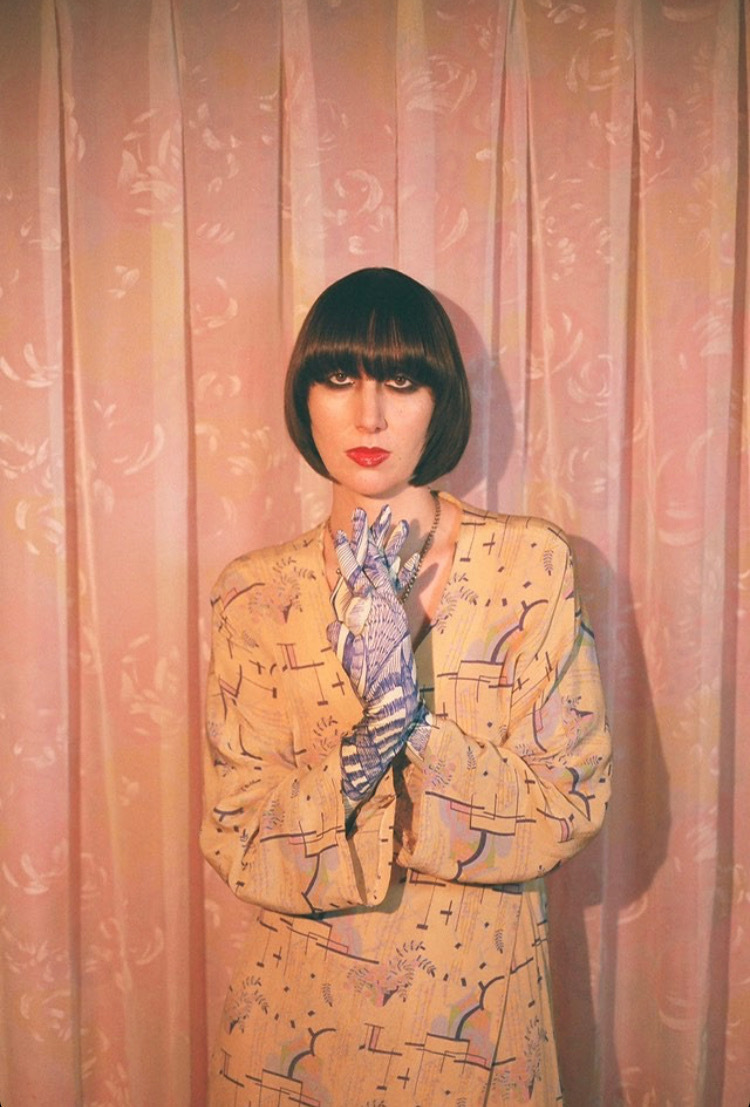
Karen O. Photo by Sandy Kim.
KAREN O: A lot of it has to do with the trauma of loss, and I went through a pretty traumatic loss at a young age as well. This new record, I feel your spirit is daring to play more than the other ones, but with conditions. Like whatever is going to set you free better fucking sweep you away in a flood.
ZAUNER: I think that’s part of just growing older. Being in my thirties and married, I feel this anxiety sometimes that teenage feelings—really intense feelings of longing and heartbreak and jealousy — are what great songs are made of. And I don’t go through that kind of torment anymore; I’m an adult. There’s something beautiful about that because I’m not heartbroken or embarrassed all the fucking time, I have consistency in my life and love that’s deep and mature. But I have this anxiety as an artist, that, “Oh shit, that’s what they want from me, how do I conjure that? How do I maintain this intensity of emotion that gets muted as you grow older?”
KAREN O: Most of my artist friends and I do have that refusal to grow up in certain parts of our soul. Like keeping the child alive and kicking. That sense of yearning and idealism and fantasy you have when you’re a teenager, I don’t ever want that to go away. Because it’s fucking beautiful, and people need that magic and mystery. On your new record, I feel like you’re settling into what it means to love deeply. And it’s funny you mentioned wanting to return to that teenage adolescent feeling because the production style on this record totally reminded me of Tiffany from the ’90s.
ZAUNER: Oh my god. I love Tiffany. I’m curious, what is your relationship to Korea? Did you go there when you were a kid?
KAREN O: Yeah, I was born in Seoul, my brother was born in Taiwan, and we moved to Jersey when I was a year-and-a-half-years-old. We would go to Korea maybe every three or four years. In my twenties I went almost every year because I was so close to my grandparents there, until 2008, when my grandmother passed. It was an amazing time because my whole life, maybe you’ll relate to this, I was waiting for Korea to have their moment in pop culture.
ZAUNER: Oh, they’re having their moment now.
KAREN O: Yeah, they’re having their fucking moment. They have for the last decade, basically. I went regularly later on, and saw the evolution to the cultural tour-de-force it is now. But for most of my life, it was nowhere to be seen.
ZAUNER: Me too. People were like, where is Korea?
KAREN O: You hung out with your relatives in Korea, right?
ZAUNER: My mom’s two sisters and my grandma, but I didn’t have a great relationship. I was really scared of my grandma.
KAREN O: I could tell from the book.
ZAUNER: Do you like Korean food?
KAREN O: We mostly grew up eating kalbi, and those fried wings that everybody loves, and japjae and mandu, just the approachable stuff. But jajangmyeon was a big deal, and naengmyeon. Every Thanksgiving there’s always kalbi.
ZAUNER: Does your kid like Korean food?
KAREN O: My kid loves Korean food. I feel like most people that ever have Korean love Korean food.
ZAUNER: Yeah, Korean food is a fun time. There’s a lot of communal eating. There’s a lot of novelty to it, too, even just getting a bunch of side dishes and grilling meat on the table. I don’t know what a shitty food would be. I guess Polish food is kind of weird.
KAREN O: Yeah, that’s my other half.
ZAUNER: Did you grow up eating Polish food?
KAREN O: Not really, because it was just always my dad and a bunch of Koreans. We had no family on his side. I like pierogies and borscht.
ZAUNER: Borscht is cool. I apologize to Polish food.
KAREN O: I feel like you should be canonized by foodies around the world. You’ve brought such profound depth to the language of love in food. It was not lost on me, the love letter to your mother in your relationship with food. You exquisitely express how profound that connection is, as an expression of love that’s harder to express in other ways. It gave me a different perspective on people I know who are obsessed with food, because it keyed me into the depth and power of something that is passed down from generation to generation. Especially in this pandemic; so many people have turned to cooking food and feeding themselves to heal themselves. Is there no greater expression of love than feeding someone, do you think?
ZAUNER: That was certainly how I was raised. I love remembering little details about people, and that’s something I really loved and appreciated about my mother, in retrospect. If I had friends over she would remember what banchan Corey liked, or who was a picky eater, who didn’t eat spicy food. That’s how I remember, too; I like knowing people’s preferences and little ordinary things that make up who they are, and displaying that through the way that you care for someone. I have a great love of food and it’s definitely how I’ve started taking care of myself in the pandemic. Thank you so much for reading my book and listening to my little album. I am such a monster fan of yours, and this has made my whole life. I feel like you’re not supposed to meet your heroes and I was worried, like, “What if she hates me?”
KAREN O: You’ve made a serious fan out of me. As an artist, you yearn for someone just getting where you’re coming from, especially as a woman. A lot of people think, “Oh she just sings on those songs,” and don’t understand how much we generate that, from writing to playing to conceptualizing the entire world and drawing it from ourselves. The fact that your companion piece to your record is this powerhouse of a book, what a gift. It’s a double gift and after reading your book then listening to your music, you experience it differently and it really got to me. So congratulations, and fly high.
